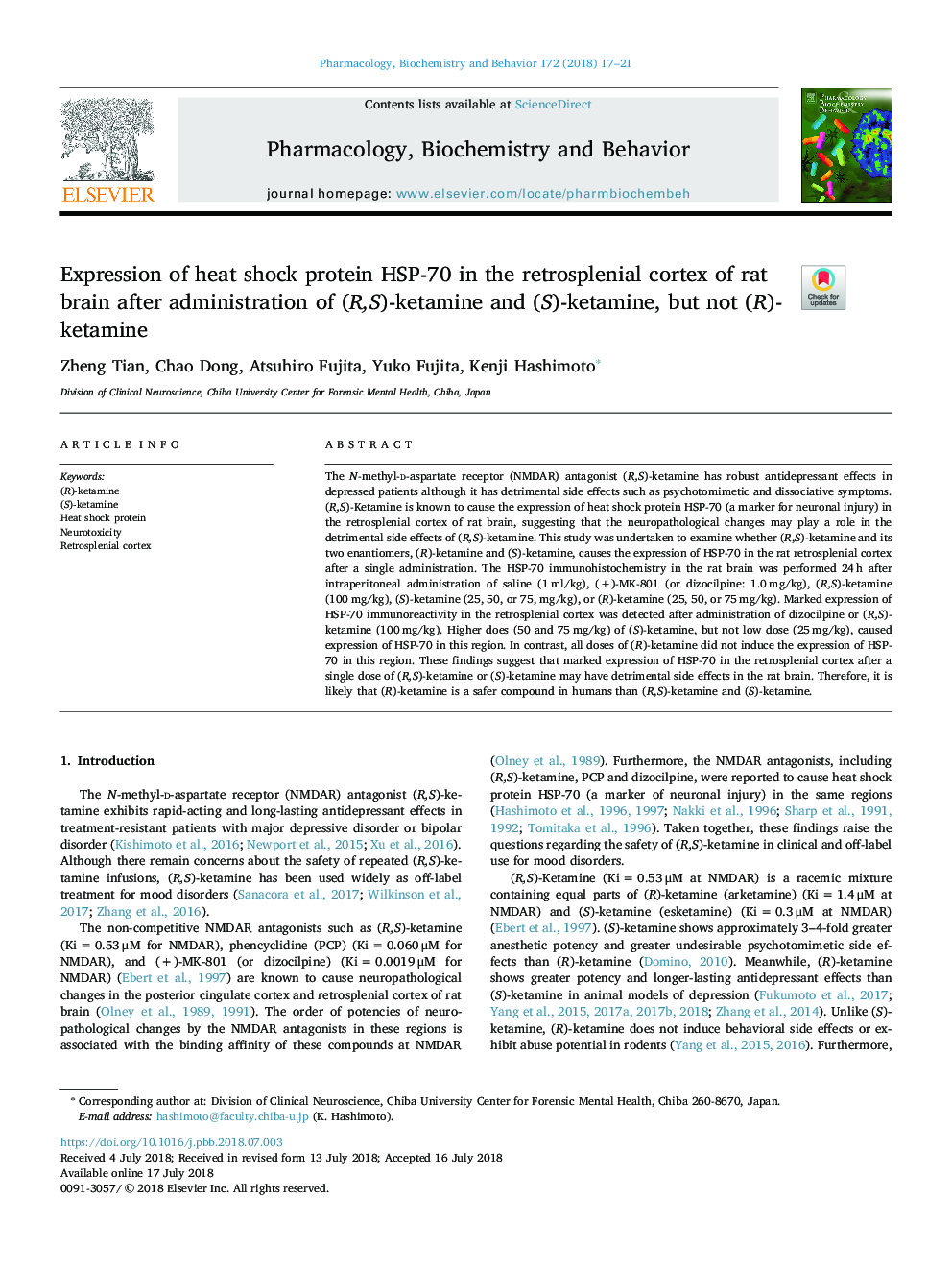| Article ID | Journal | Published Year | Pages | File Type |
|---|---|---|---|---|
| 8349867 | Pharmacology Biochemistry and Behavior | 2018 | 5 Pages |
Abstract
The N-methyl-d-aspartate receptor (NMDAR) antagonist (R,S)-ketamine has robust antidepressant effects in depressed patients although it has detrimental side effects such as psychotomimetic and dissociative symptoms. (R,S)-Ketamine is known to cause the expression of heat shock protein HSP-70 (a marker for neuronal injury) in the retrosplenial cortex of rat brain, suggesting that the neuropathological changes may play a role in the detrimental side effects of (R,S)-ketamine. This study was undertaken to examine whether (R,S)-ketamine and its two enantiomers, (R)-ketamine and (S)-ketamine, causes the expression of HSP-70 in the rat retrosplenial cortex after a single administration. The HSP-70 immunohistochemistry in the rat brain was performed 24â¯h after intraperitoneal administration of saline (1â¯ml/kg), (+)-MK-801 (or dizocilpine: 1.0â¯mg/kg), (R,S)-ketamine (100â¯mg/kg), (S)-ketamine (25, 50, or 75, mg/kg), or (R)-ketamine (25, 50, or 75â¯mg/kg). Marked expression of HSP-70 immunoreactivity in the retrosplenial cortex was detected after administration of dizocilpine or (R,S)-ketamine (100â¯mg/kg). Higher does (50 and 75â¯mg/kg) of (S)-ketamine, but not low dose (25â¯mg/kg), caused expression of HSP-70 in this region. In contrast, all doses of (R)-ketamine did not induce the expression of HSP-70 in this region. These findings suggest that marked expression of HSP-70 in the retrosplenial cortex after a single dose of (R,S)-ketamine or (S)-ketamine may have detrimental side effects in the rat brain. Therefore, it is likely that (R)-ketamine is a safer compound in humans than (R,S)-ketamine and (S)-ketamine.
Related Topics
Life Sciences
Biochemistry, Genetics and Molecular Biology
Biochemistry
Authors
Zheng Tian, Chao Dong, Atsuhiro Fujita, Yuko Fujita, Kenji Hashimoto,
